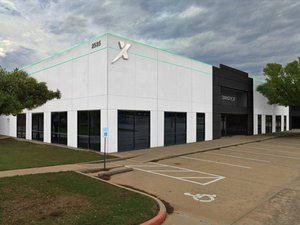
CodeLathe founder and CEO Madhan Kanagavel didn't necessarily plan to bootstrap his file-sharing startup.
In fact, in 2008, when he was developing an idea to help consumers use their laptops as their own personal cloud servers, he, like thousands of founders before him, went to Silicon Valley in hopes of convincing some of the world's top venture capitalists that his idea was destined for big returns.
They didn't bite.
“When you have an idea and you think it’s going to potentially change the world … sometimes they’re not seeing what you’re seeing, so there’s a disconnect," he said.
But perhaps that's a good thing. Kanagavel, an experienced engineer, didn't let the lack of investor interest slow him down.
“I spent the next two to three years really putting my head down and building it out," he said.
What emerged is FileCloud, CodeLathe's cornerstone product. It's personal cloud software that allows self-hosted file sharing and synchronization. Since it focuses on internal hosting, it targets companies with sensitive data in industries including insurance, health care and more. Generally speaking, it's in direct competition with heavily funded and long-established companies such as Dropbox, Google and Microsoft.
Kanagavel expresses no regrets about not landing a VC funding deal. Since he started focusing entirely on engineering and customer service a few years ago, things have taken off and the company has grown to about 60 employees.
“Every year since then it just exploded," he said. “Now we’re in a very strong position, so it’s not really a requirement to go raise money.”
Kanagavel sees a lot of benefit to bootstrapping.
“Raising money is really not the end goal of businesses," he said. "It’s about making sure you create value and serve your customers.”
Today's software driven world -- along with the ability to hire remote talent -- makes the cost of developing tech innovations much lower than in the past. But, he acknowledges, not every startup can make it without funding.
For non-technical founders, venture capital is often the only way to find enough money to hire the tech team you need to build a successful product. And you may need insights from mentors and board members that a technical founder may not need as much.
Meanwhile, bootstrapping founders also need to understand they may have to forego a salary for longer. Kanagavel said he worked without a salary for more than four years.
While successful bootstrapping depends mostly on great ideas and execution, location can help. And Austin is among the best, according to a Mainsail Partners survey.
"No other city can quite match Austin’s growth rate, with a 20 percent surge in population since 2010," they reported. "Bootstrapped businesses are growing too, with 88 percent of Austin respondents expecting faster growth in 2018. When asked why their city is a great place to bootstrap, two different respondents replied simply: 'It’s Austin!'"
For almost any startup, venture capital could be part of the equation. And FileCloud has considered VC investment to help it grow now that it has matured and gained enough traction to really capitalize on marketing dollars.
But the key, Kanagavel said, is being ready.
“It’s like rocket fuel -- you can’t pour that into a rocket before it’s ready for it," he said. "You have to make your systems are ready to handle it.”








